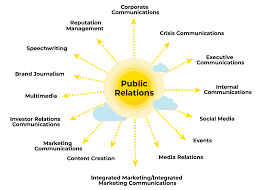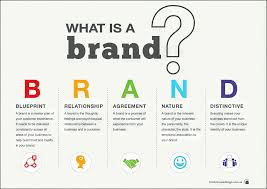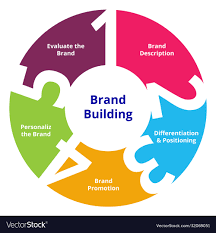Unlocking Potential: The Power of Professional Training in Career Development
The Importance of Training in Professional Development
Training plays a crucial role in the growth and development of professionals across all industries. It provides individuals with the knowledge, skills, and expertise needed to excel in their roles and advance their careers.
One of the key benefits of training is that it enhances employees’ capabilities and performance. By undergoing training programmes, employees can acquire new skills, improve existing ones, and stay updated on industry trends and best practices. This not only benefits the individual but also contributes to the overall success of the organisation.
Furthermore, training helps boost employee morale and motivation. When employees feel supported by their employers through training opportunities, they are more engaged, satisfied, and committed to their work. This leads to higher productivity levels and a positive work environment.
Continuous training is essential in today’s fast-paced business world where technologies and processes are constantly evolving. Professionals need to adapt to these changes quickly to remain competitive and relevant in their fields. Training provides them with the tools to do so effectively.
Moreover, training can help organisations attract and retain top talent. Offering comprehensive training programmes demonstrates a commitment to employee development, which can be a significant factor for job seekers when choosing an employer. It also helps improve employee retention rates as individuals are more likely to stay with a company that invests in their growth.
In conclusion, training is an invaluable investment in both individual professional development and organisational success. By providing employees with opportunities to learn and grow, organisations can create a skilled workforce that drives innovation, productivity, and overall success.
Exploring the Impact of Training on Professional Growth and Workplace Success: Six Key Questions Answered
- What are the benefits of training in professional development?
- How can training enhance employees’ skills and performance?
- What types of training programmes are available for professionals?
- Why is continuous training important in today’s business environment?
- How does training contribute to employee morale and motivation?
- What impact does training have on attracting and retaining talent?
What are the benefits of training in professional development?
Understanding the benefits of training in professional development is essential for individuals and organisations alike. Training equips professionals with the necessary knowledge and skills to excel in their roles, enhancing their performance and productivity. It also boosts employee morale, motivation, and job satisfaction, leading to a more engaged workforce. Additionally, training helps professionals stay abreast of industry trends and advancements, ensuring they remain competitive and adaptable in today’s rapidly evolving business landscape. Ultimately, investing in training not only benefits individual career growth but also contributes to the overall success and sustainability of organisations.
How can training enhance employees’ skills and performance?
Training is a powerful tool that can significantly enhance employees’ skills and performance in the workplace. By providing structured learning opportunities, training equips employees with the knowledge and expertise needed to excel in their roles. Through training programmes, employees can acquire new skills, refine existing ones, and stay abreast of industry developments and best practices. This continuous learning not only boosts employees’ confidence and motivation but also enables them to perform their tasks more effectively and efficiently. Ultimately, training plays a crucial role in empowering employees to reach their full potential, driving overall productivity and success within the organisation.
What types of training programmes are available for professionals?
There is a wide range of training programmes available for professionals seeking to enhance their skills and knowledge in various industries. Some common types of training programmes include technical skills training, leadership development programmes, communication and presentation skills workshops, project management courses, industry-specific certifications, and soft skills training such as time management and conflict resolution. Additionally, professionals can also benefit from online courses, seminars, conferences, on-the-job training, mentoring programmes, and executive coaching sessions tailored to their specific needs and career goals. With the diverse array of training options available, professionals have the opportunity to continuously improve themselves and stay competitive in today’s dynamic business environment.
Why is continuous training important in today’s business environment?
Continuous training is crucial in today’s business environment due to the rapid pace of change and innovation. With technologies evolving, market trends shifting, and competition intensifying, professionals need to constantly update their skills and knowledge to stay relevant and competitive. Continuous training ensures that employees are equipped to adapt to new challenges, embrace emerging trends, and contribute effectively to the success of the organisation. By investing in ongoing training initiatives, businesses can foster a culture of learning and development that not only enhances employee performance but also drives innovation and growth in an ever-changing business landscape.
How does training contribute to employee morale and motivation?
Training plays a vital role in boosting employee morale and motivation in several ways. Firstly, by providing training opportunities, employers show their commitment to investing in their employees’ growth and development, which can make employees feel valued and appreciated. Secondly, training equips employees with the skills and knowledge needed to perform their jobs effectively, leading to increased confidence and job satisfaction. Additionally, training can open up new career advancement opportunities for employees, motivating them to excel in their current roles and strive for further success within the organisation. Overall, training contributes to a positive work environment where employees feel supported, empowered, and motivated to achieve their full potential.
What impact does training have on attracting and retaining talent?
Training plays a significant role in attracting and retaining talent within organisations. Offering comprehensive training programmes demonstrates a commitment to employee development, which can be a key factor for job seekers when evaluating potential employers. Professionals are more likely to be drawn to companies that invest in their growth and offer opportunities for continuous learning. Additionally, providing training opportunities not only helps in attracting top talent but also contributes to higher employee retention rates. When employees feel supported and valued through training initiatives, they are more likely to stay with the organisation long-term, leading to a skilled and engaged workforce that drives success.












